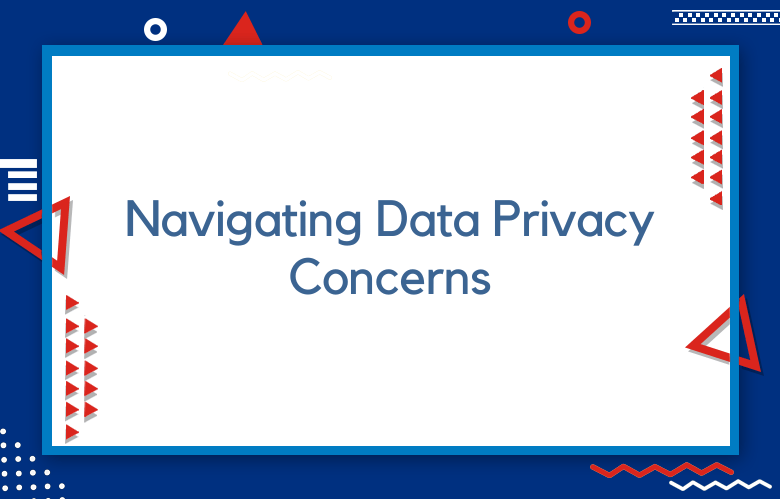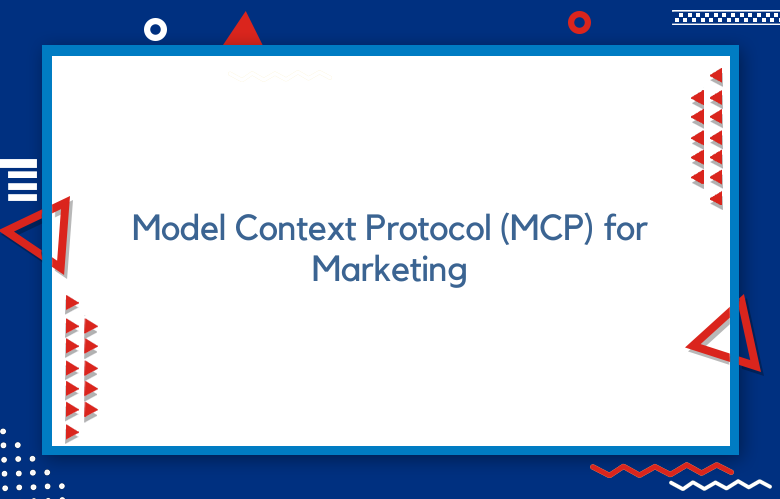Navigating Data Privacy Concerns in AI-driven Marketing

Marketing has always been about targeting the right audience with the right message at the right time. With the advent of artificial intelligence (AI), marketers can do this more effectively and efficiently.
AI allows for more accurate customer segmentation, personalized marketing, and better targeting. However, AI brings new challenges, including data privacy concerns. We’ll explore how data privacy concerns can arise in AI-driven marketing and what you can do about them.
Mitigating Privacy Risks in AI Marketing: Preemptive Measures to Take
Artificial intelligence (AI) has revolutionized the marketing world by enabling companies to gather vast customer data.
This data is utilized to personalize customer experiences and increase revenue. However, using AI in marketing poses a significant privacy risk, as customer data is vulnerable to misuse and mishandling.
Companies must take preemptive measures to safeguard customer data to mitigate these privacy risks.
Encryption: Encrypting data can be an effective way to protect customer information from unauthorized access. Companies can use encryption techniques such as AES to ensure that sensitive information is not accessible to individuals without the appropriate authorization.
The Role of Ethics in AI-driven Marketing and Data Privacy
One of the biggest challenges AI-driven marketing poses is ensuring that ethical guidelines are followed.
With increasing amounts of data being collected and analyzed in real time, robust frameworks are crucial to ensure that privacy is upheld and data is used ethically and responsibly.
One of the main ethical concerns with AI-driven marketing is the potential for creating bias in decision-making processes.
With AI algorithms heavily driven by historical data, there is a risk of perpetuating discriminatory practices and attitudes ingrained in our society for decades.
To combat this, marketing professionals and analysts must be aware of the potential for bias and work to create algorithms that are as objective and unbiased as possible.
Data Security in AI Marketing: Protecting Against Cyber Threats
In today’s digital age, data has become an invaluable asset for businesses, enabling them to make informed decisions and tailor their marketing strategies to meet their customers’ needs.
As Artificial Intelligence (AI) emerges as a game-changer in the marketing industry, the importance of data security cannot be overstated.
Given the rapidly growing concerns of cyber threats, not only does the security of customer data need to be ensured, but also the protection of proprietary information and algorithms used in AI marketing.
Cybersecurity breaches involving sensitive data have become common, leading to devastating consequences such as reputational damage, loss of customer trust, and costly legal proceedings.
Consumer Control and Data Privacy in AI Marketing
The rise of Artificial Intelligence (AI) has brought a host of new possibilities for marketers to engage with consumers. However, with these possibilities come new challenges. One of the most significant challenges in AI marketing is consumer control and data privacy.
As AI technologies become more sophisticated, they enable marketers to gather vast amounts of data about consumers in real time.
This data includes everything from browsing habits to purchasing patterns and can be used to create highly personalized marketing messages tailored to each customer.
While this level of personalization can provide a more engaging customer experience, it also raises concerns about data privacy and security.
Building Brand Trust through Data Privacy in AI-driven Marketing
Artificial Intelligence (AI) has revolutionized marketing by providing businesses with powerful tools to better target, engage, and convert customers. However, as AI-driven marketing becomes more prevalent, companies must prioritize data privacy to build brand trust.
Data privacy is paramount for consumers, who expect companies to protect and use their personal information ethically.
A recent survey found that 86% of consumers feel that companies need to be more transparent with how they use consumer data. Failure to do so can result in lost trust and damage a company’s reputation.
Companies must establish precise data collection, storage, and usage policies to ensure data privacy in AI-driven marketing. This includes obtaining consent from customers and ensuring that their information is securely encrypted and protected against cyber-attacks.
Evolving Regulatory Landscape: Future-proofing Data Privacy in AI Marketing
The regulatory landscape for data privacy in AI marketing is constantly evolving as governments and organizations work to balance the advantages of AI technology with concerns around consumer privacy.
In recent years, several high-profile scandals and data breaches have highlighted the need for stronger regulations and stricter enforcement measures to protect individuals’ personal information.
One key challenge facing companies in the AI marketing space is ensuring that their algorithms and models are transparent and explainable.
As AI systems become ever more complex and autonomous, understanding how decisions are made and what data is used to inform them can become challenging.
This lack of transparency can make identifying and correcting errors or biases in the algorithm challenging, potentially leading to discriminatory outcomes or other issues that could harm consumers and businesses.
Obtain consent from users for data collection.
Data collection is crucial to AI-driven marketing. User data such as search history, shopping patterns, and location helps deliver a personalized experience. However, obtaining consent from users before collecting data is essential.
Please do so. It violates data privacy laws and leads to a loss of customer trust. Make sure that your company practices an opt-in approach. This way, users will control how their data is collected and used.
Be transparent about data usage and handling.
Transparency is vital when it comes to data privacy. Be open about how user data is collected, handled, and used. Clearly articulate what users can expect when they share their data with your company and what you’re doing to keep their data secure.
Ensure your privacy policy is easily accessible on your website and easy to understand. Ensure all employees are transparent about the company’s data privacy practices and procedures.
Using personalization responsibly
Personalization can be a double-edged sword when it comes to data privacy. While it provides customers with a more enjoyable experience, it also carries the risk of being creepy or intrusive.
Customers don’t want to feel like they’re being watched or tracked. Be careful not to cross the line by over-personalizing marketing campaigns. Avoid over-personalizing by collecting only what you need, not what would be nice. Use AI to recommend products or content, but don’t do so at the expense of customer trust.
Keep data secure and limit access.
Protecting user data should be a top priority for companies using AI in their marketing. This means using secure servers and having proper security protocols in place.
Update your security regularly in response to changes in data security laws. Limit access to sensitive data and only share it with employees who need it for their roles. Ensure third-party service providers handling user data are compliant with data privacy laws.
Respect the right to be forgotten.
One of the most important aspects of data privacy laws is users’ right to delete their data. Respect this right by ensuring users can quickly delete their data.
Implement a quick and legally compliant data removal process. Educate your users about their right to be forgotten and how they can exercise it.
Conclusion:
AI-driven marketing has revolutionized how businesses market themselves. However, with this progress comes added responsibilities. Your customers expect their data to be handled carefully and transparently.
To take advantage of AI’s capabilities while respecting user privacy, be transparent about data usage and handling, obtain consent from users for data collection, limit access to data, and always be ready to respect your user’s right to be forgotten. These steps will establish trust, protect user data, and ensure your marketing practices respect privacy laws.
Call: +91 9848321284
Email: [email protected]



